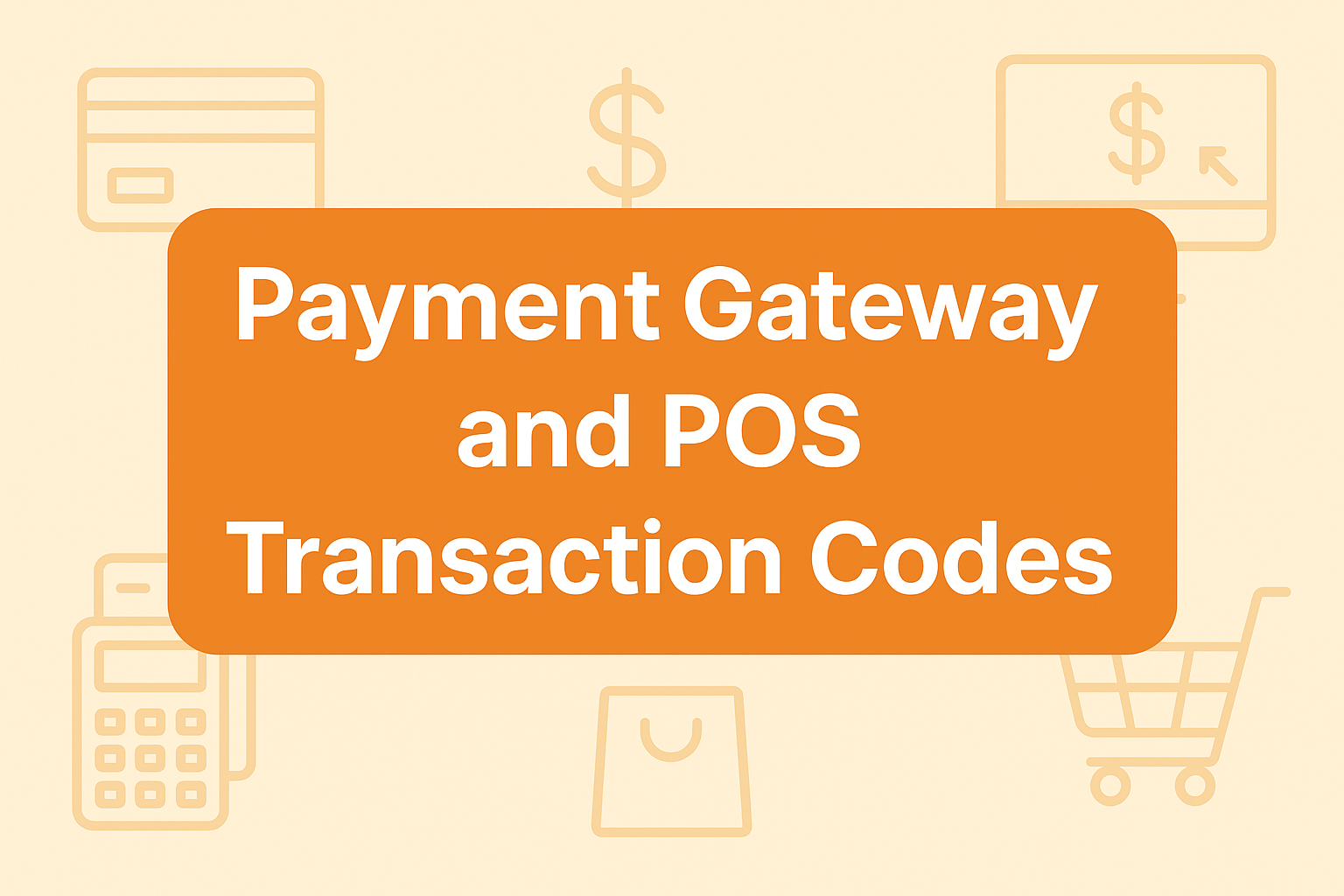📘 Standard Payment Gateway & POS Transaction Codes Reference
This is a curated, beginner-friendly guide for fintech professionals, developers, merchants, and product owners who want to understand transaction codes commonly seen in payment gateways and point-of-sale (POS) systems.
📌 Note: Transaction codes may vary slightly depending on the payment gateway, acquiring bank, processor, or regional standards. Always refer to your specific provider’s documentation for exact mappings.
🏦 Common POS Transaction Types (ISO 8583-style codes / Acquirer-Level)
00 – Approved or completed successfully
01 – Refer to card issuer
05 – Do not honor
12 – Invalid transaction
13 – Invalid amount
14 – Invalid card number
30 – Format error
41 – Lost card – pick up
43 – Stolen card – pick up
51 – Insufficient funds
54 – Expired card
91 – Issuer or switch inoperative
96 – System malfunction
These codes are typically used during card-present or terminal transactions when issuing banks approve or decline a transaction.
💳 Payment Gateway API Response Codes (Gateway-Level)
100 – Successful transaction (Authorization)
200 – Partial Approval
201 – Insufficient Funds
202 – Expired Card
203 – CVV mismatch
204 – Card reported lost
205 – Card reported stolen
300 – Processor timeout
400 – Invalid request format
401 – Unauthorized (Invalid API Key or token)
402 – Declined by processor
500 – Internal server error
Used in JSON/XML responses by modern payment gateways (e.g., Stripe, Adyen, PayU, Razorpay).
🧾 POS Entry Modes (Card Reader Types)
01 – Manual entry
02 – Magnetic stripe read
05 – Chip read (EMV)
07 – Contactless (NFC)
91 – Fallback to magnetic stripe
Important for identifying the card capture method during POS transactions.
🔄 Standard Payment Status Codes
INITIATED – Payment request received but not yet processed
PROCESSING – In progress
AUTHORIZED – Authorized but not captured
CAPTURED – Funds captured
SETTLED – Funds transferred to merchant
DECLINED – Payment denied by issuer
REFUNDED – Reversal completed
CHARGEBACK – Dispute raised
VOIDED – Authorization canceled before capture
📦 POS Settlement Batch Codes
BAT01 – Daily Batch 1 (Terminal-level close)
BAT02 – Daily Batch 2 (Mid-day batch)
RPT01 – Reprint Last Transaction
RPT02 – Reprint Batch Summary
SETL – Settle all batches (usually done once per day)
💼 Admin/Support Event Codes (Useful for Dashboard & Helpdesk Teams)
TXN001 – Transaction initiated by customer
TXN002 – Payment link sent
TXN003 – Transaction timeout
TXN004 – OTP failed
TXN005 – Transaction canceled by user
TXN100 – Refund issued
TXN200 – Chargeback processed
📈 Final Thoughts – Why This Matters for Fintech Teams
Understanding standard payment gateway and POS transaction codes is crucial for fintech product managers, developers, QA testers, and operations teams. Whether you’re building a new payment product, integrating a third-party API, or running support for merchants—knowing what each code means can reduce downtime, speed up resolution, and improve the customer experience.
At FintechRite, we create and share resources that simplify complex digital payment systems. If you’re serious about launching or scaling your own white-label payment gateway or digital wallet, our team can help you get there faster—with full control and ownership.
Stay updated with more fintech insights, guides, and product frameworks at fintechrite.com.
📧 Email us: info@fintechrite.com
Let’s simplify fintech together!

